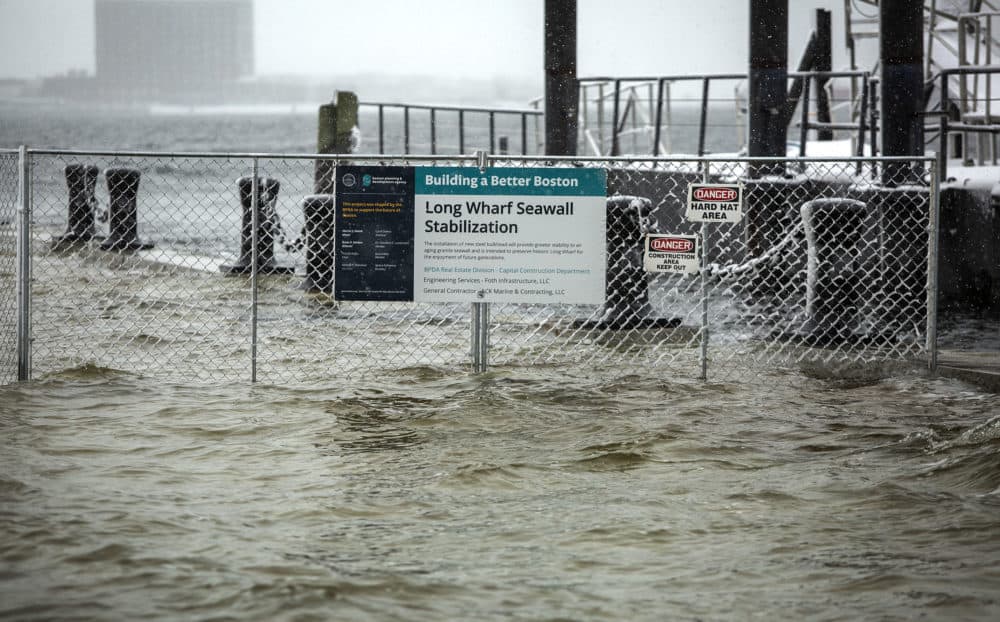Advertisement
To Guard Against Flooding, Boston Proposes Climate-Resilient Zoning

The sea level around Boston crept up 9 inches in the 20th century. Driven by climate change, that pace is increasing, and expected to add 9 inches over the 2016 level by 2030.
As a result, Boston ranks eighth in the world among metropolitan areas in expected economic losses from coastal flooding, estimated at $237 million per year between now and 2050.
To cope with this threat, the city released coastal resilience design guidelines last year. Now Boston's planning agency wants to require both new developments and renovated buildings to comply with them.
Through a proposed zoning overlay district aimed at areas vulnerable to flooding, developments larger than 20,000 square feet will face a new step in the the Boston Planning and Development Agency's (BPDA) review process.
Agency Director Brian Golden said that, while some developers are already incorporating climate resiliency into their buildings, the proposed zoning requirements aim to raise the bar for developers doing just the bare minimum.
"Boston is New England's economic engine, and if New England's economic engine is paralyzed on a regular basis as a result of floods that the built environment can't accommodate, then we're all in trouble," Golden said.
One aspect of the plan would give builders additional space for mechanical equipment in areas of buildings less prone to flooding, like installing an HVAC unit upstairs rather than in a basement. The new rules would also measure building height from the first habitable floor, rather than from the ground floor. This would allow developers to include "sacrificial" ground floors that can survive flooding, while building higher than currently allowed under zoning rules.
"We would not want any loss of square footage area," said Chris Busch, senior waterfront planner for the BPDA. "So there would be exclusions for stairs, ramp systems, as well as any type of flood protection measures that may be implemented."
Greg Vasil, CEO of the Greater Boston Real Estate Board, acknowledges that the city has to balance the need for climate preparedness with larger development goals.
"With additional rules, those housing costs will rise, but the BPDA’s overlay efforts to safeguard those buildings are unavoidable with our changing weather," Vasil said in a statement. "It will take a total team effort between the city and business to make this a success for Boston."
Public hearings on the plan will be held on Jan. 13 and 15, and the public comment period will end Feb. 12.
The proposal could go to the city's zoning commission for a vote as early as April.
